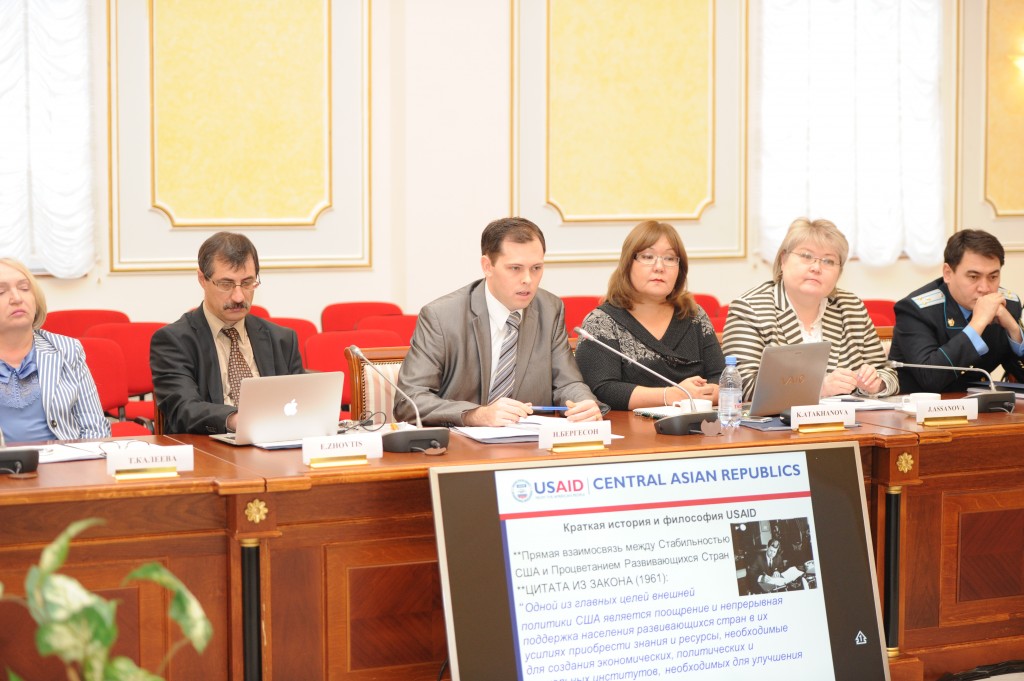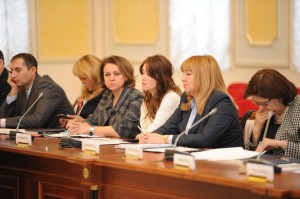ASTANA – The right to freedom of movement was the theme of the regular meeting of the Consultative-Advisory Body Platform for Dialogue on Human Dimension held Nov. 10 at the Ministry of Foreign Affairs under the chairmanship of Ambassador at Large Usen Suleimen.
 Participants emphasised the special importance of this topic because the right to free movement is the natural right of a citizen and one of the ideals of his or her personal liberty.
Participants emphasised the special importance of this topic because the right to free movement is the natural right of a citizen and one of the ideals of his or her personal liberty.
The right to freedom of movement and right to choose a place of residence within a state, as well as the right to leave and return to the country without hindrance, is recognised by the international community and recorded in all the basic international instruments on human rights.
“The goals of our dialogue platform are clear. We work on establishing a greater synergy between the government, parliament and NGOs in joint efforts to solidify a democratic foundation in Kazakhstan. We want to strengthen the culture of open dialogue and political debates,” Suleimen said.
“As practical and deliverable, we want to work out a joint plan for the future development of Kazakhstan within the framework of [the Kazakhstan 2050] Strategy and prepare recommendations to the government and parliament to be incorporated into a draft of the Human Rights Action Plan until 2020,” he added.
During the meeting, reports were presented by the Deputy Chairman of the Department for Migration Police of the Ministry of Internal Affairs Dulat Iskakov, Chairman of the Board of International Bureau for Human Rights and Rule of Law Yevgeniy Zhovtis and Director of International Bureau for Human Rights and Rule of Law Roza Akylbekova. Presentations of projects and funding programmes of the Kazakh nongovernmental sector from the side of international organisations were made by Director of the United States Agency for International Development (USAID) office in Astana Nils Bergeson and Deputy Chairman of the Association of Civil Society Development (ARGO) Kaisha Atakhanova.
Representatives of the non-governmental sector had raised a range of issues relating to the current system of registration of citizens, existing regulations governing the actions of the bodies of internal affairs in case of temporary restrictions of the rights to freedom of movement of citizens and the rights of refugees and stateless persons.
 Materials and recommendations of the civil society sector voiced at the meeting were accepted by the state bodies for further study and work aimed at the development of democracy and civil liberties, as well as the rule of law in Kazakhstan.
Materials and recommendations of the civil society sector voiced at the meeting were accepted by the state bodies for further study and work aimed at the development of democracy and civil liberties, as well as the rule of law in Kazakhstan.
In the framework of this dialogue platform the Kazakh Foreign Ministry has had systematic and comprehensive work with national NGOs since 2013 in the field of human rights and democracy. The trilateral platform allows leaders of national and international non-governmental sectors to build a direct dialogue with the representatives of the Kazakh government and parliament with the participation of Organisation for Security and Cooperation in Europe (OSCE), UN and European Union representatives.
Thus, by the result of the advisory body’s work during 2013, more than 150 recommendations were developed, from which government representatives agreed with 40 for implementation, 60 are under discussion and about 50 are still being debated. On the recommendation of the NGO sector, participants are developing three road maps relating recommendations based on the degree of its adjustment.

